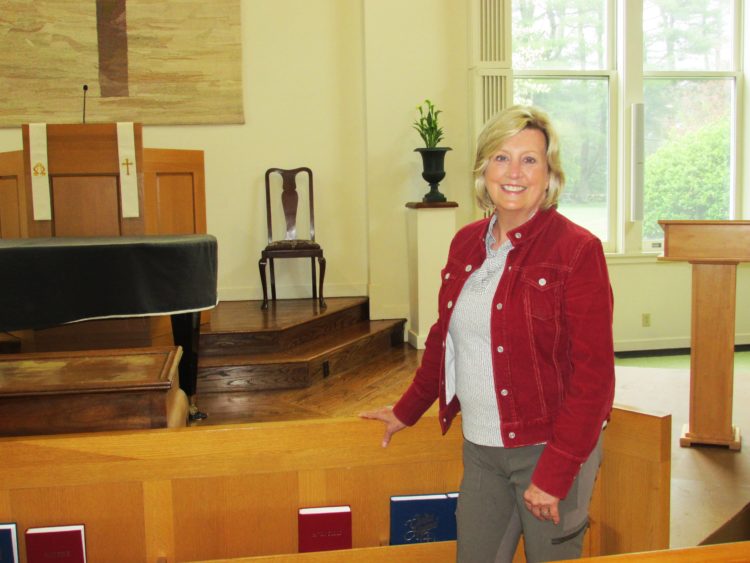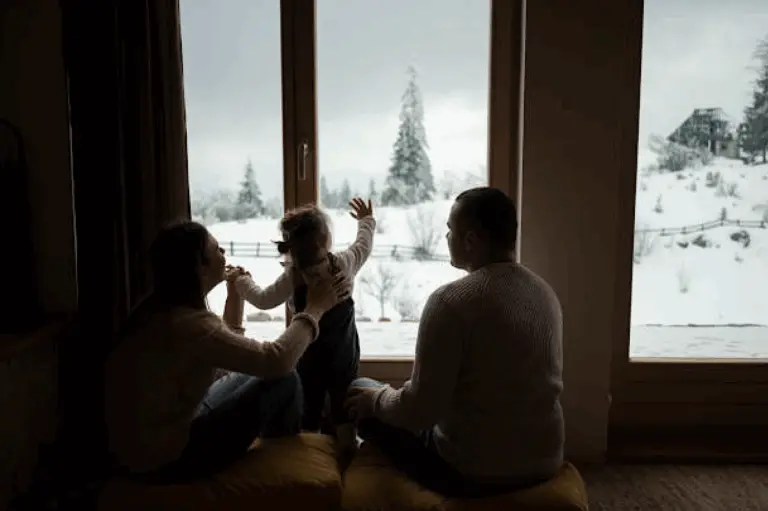
By Anne W. Semmes
A book entitled “The Invisible Conversations with Your Aging Parents” intrigues. Its author is the Rev. Shannon White, Pastor for Spiritual Development at Round Hill Community Church. In her three decades of ministry, she has “seen and heard much from families who are dealing with issues which arise as family members age” that resulted in her book that she often addresses in talks across town. But recently a member of her church suggested, “We need to do something that addresses the issues of our aging population,” and that was the impetus for her creating with her church an event coming on Sunday afternoon, April 30, entitled, “Tools for Aging Well.”
“So, “Tools for Aging Well” would be,” White describes, “what are the choices that need to be made so that you can live the life that you want to live as you age? Learning how to ask the right questions to the right people – there are so many options which can be overwhelming for people.” She describes the event: “So, we’ll have a time for people to come in at three o’clock to 3:30 to look and ask people questions at booths [of retirement homes, caregiver organizations, trusts and wills, and town agencies.].” Then the program starts at 3:30 with six panelists, with “a good portion of that to be questions and answers from the audience that will have cards in the pews to write questions.” And then at 4:45, refreshments, “and people can go back to the booths.”
White then breaks down what led to her book, of those “Invisible Conversations” a term she has trademarked. “It’s not two words you would normally put together. But it’s the kind of conversations that stay in our heads that never come out of our mouths that create a disconnection at a time when connection is so important.”
So those conversations include Greenwich stories, she tells, “of people who gave me permission to use their names, or I changed their identity” like the attorney who shared the competition between siblings over parents giving, or not giving. “Well, you paid for her daughter’s private school, and you didn’t pay for my daughter’s private school kind of thing.”
What has surprised White, “It’s the older adults, the aging parents that are buying this book and giving it to their children and saying, ‘Hint, hint, I need to talk.’ Whether it’s where do you want to live, or what do you want your life to look like.” Or in her mother’s case it was her replacing White as her power of attorney while living in Texas out of fear her daughter wouldn’t consult her siblings “if something were to happen, and she would make the decision.” White’s response to her mom was, “Well, it really is about making sure that your decisions are carried out, not everybody else’s.”
“So, what happened in that conversation is that we forged through to a new level of honesty and connection,” says White. “Because I was willing to listen, and she took the risky thing of telling me. And it made me think about all the other conversations that don’t happen.”
Like her grandfather, who was in assisted living after her grandmother died, “and he was running upstairs to be with a woman for physical and emotional comfort, and my father and my uncle freaked out because they thought, ‘”Oh my gosh, he’s going to get married to her and then we’re going to lose the inheritance’…How do the adult children deal with that?”
Then there was the issue of who would provide the financial support for the assisted living of White’s mother as she aged. “My mother died a year and a half ago, and it was pretty sudden.” Her older sister and brother-in-law had become the primary caregivers. “And they had been resentful that the rest of us weren’t contributing the same amount that they were…and they had made the choice and the decision and had the means to be able to take care of her by providing the assisted living place. And she was in great health. But they decided not to talk to me and my two other sisters for three years, and it was so painful.”
And when is the appropriate time to take the keys away from an aging parent? There was that Greenwich daughter of an aging mother who was progressing with dementia. “Her mother was in an assisted living place but wanted to keep her car. ‘Let’s just see,’ tells the daughter. And over a six-month period, her daughter was so patient with her and just each time, it would be, ‘Well, let’s just see.’ So, they would drive the car around the parking lot, and eventually, she wasn’t able to find where she had parked. So, it was a very organic kind of a process.”
And what about that challenge when the adult children live far from their aging parents?
“Grown children are working all over and need to have professional lives, and their aging parents are here and want to be here because this is where their community is or this is where they’ve raised families. It’s hard.”
White shares a recent conversation with an aging mother whose only child lives in Europe, who had suggested her mother contact a certain agency. “And this woman is very smart and has held her own her whole life, and she responded, ‘I don’t know if I want what she’s suggesting.’ So, I said, ‘I understand. There are lots of choices to be made.
“So, whether that’s bringing somebody into the home and ensuring that there’s care in the home on a regular basis, or if it’s in an assisted living place, whether it’s an apartment or a separate home, like at the Osborn there are houses right on campus, and they have stepped up living. So, if dementia comes into the picture, you want to make sure that they don’t have to move to a new place. So, people are looking at their own family lines to see what might be inherited.”
So, for the forthcoming “Tools for Aging Well” event, “the target audience is not only adult children,” says White, “it is the aging parents too – seniors as well as the caregivers. It’s to provide information so that people can make choices and give them empowerment for whatever they decide to do.
“Every panelist is bringing their information for free. So, there will be information on legal documents that are needed. There’ll be information about the individual services that each organization gives or has available. Dr. Stephanie Paulmeno is going to bring things from the Southwestern CT Agency on Aging and Independent Living, as well as the Commission on Aging. And there’ll be information from the town of Greenwich about what resources are available for people, financially and for free.”
For more information on the April 30 “Tools for Aging Well” event contact the Round Hill Community Church online at roundhillcommunitychurch.org or call 203-869-1091.
Panelists and their subjects for “Tools for Aging Well” Event:
Donna Spellman: Executive Director, River House Adult Day Center
The value of adult day care for those who choose to keep their loved ones at home and the importance of creating community.
Ricki Goldstein: Medical Administrator, Sterling Care
Homecare: when do you/does your loved one need home care? What type of homecare is needed/available, and the advantages of homecare.
Linda Ziac: Founder/Owner. The Caregiver Resource Center
Understanding the often-confusing healthcare maze, and simple proactive steps a person can take to prepare; should a medical issue arise, resulting in a trip to the Emergency Department, Hospital, or Short-term Rehab Facility.
Dr. Stephanie Paulmeno, The Greenwich Department of Health
Addressing the important distinction and differentiation between dementia, delirium, and signs of clinical depression, including causes, similarities and differentiations, and the implications for family members who may need to make important care and treatment decisions. And the impact of growing substance/medication use and misuse with seniors and how that exhibits.
Elizabeth Grant, Partner of Whitman, Breed, Abbott and Morgan
Trusts, wills, POA, all legal documents.
Joan Brustman, Community Sales Director, Atria Rye Brook
The benefits of life at a senior Living community. We are living longer; how can we live better. Numerous reports tout the health benefits for older adults who live a more social life. Senior living communities make it easier to connect with others.




